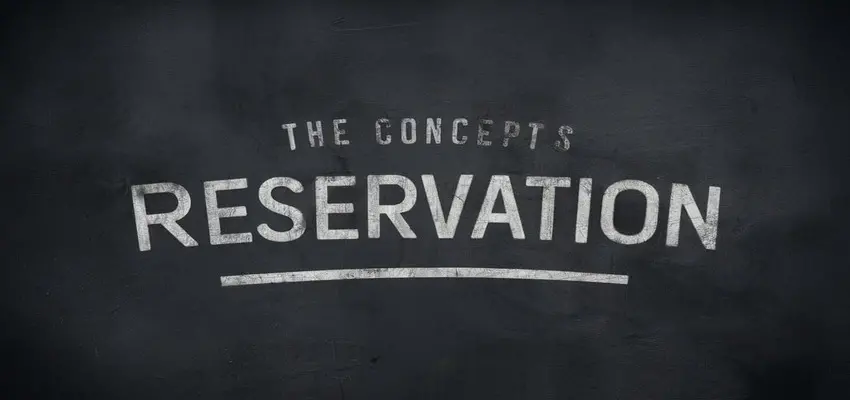What is the concept of reservation?

The Concept of Reservation
Reservation is a type of compensation given by the state in an attempt to right a historical wrong and bring equal opportunities for people of color. It entails creating barriers where people from certain social classes cannot get access to educational facilities, government jobs, or even the legislative assembly as is the case with the reservation policy in India.
The concept of reservation in India came into existence after the British rule left the country.
It was drawn from the caste structure of Indian society, which has seen the low castes suffer social and economic exclusion for decades now. The Indian constitution banned the practice of untouchability and discrimination based on caste and also provided for the protection of the rights of the scheduled castes and tribes, the untouchables, who were known as the backward classes of India were entitled to be given reservations.
The reservation policy has further been extended over several decades after the independence to the Other Backward Classes. Right now, upper caste domination is practiced in governmental jobs and educational facilities with quotas, 15% for Scheduled Castes, 7. 5% for Scheduled Tribes, and 27% for Other Backward Classes. There is also what is referred to as the ‘Women and Equalities Committee’ or ‘Disabled People’, ‘Veterans’, and so on; the actual proportion depends on the state.
General statement of the reservation policy :
The primary objectives of reservation are:
1. To increase representation of marginalized groups: Thus, reservation’s intent is to immediately enhance the share of the target groups in education, employment, and governance merely by providing them reserved seats. They are much lower in a more open competition scenario where they cannot rely on their current customers as their captive audiences.
2. To compensate for historical injustice: Reservation also understands that there are communities that have been marginalized and discriminated against socially for hundreds of years because of the caste system. It seeks to make up for the lost chances partially in the past and give a person a fair chance in the future.
3. To achieve substantive equality: Reservation is not just for giving everyone equal respect but also for giving opportunities to the socially and economically backward sections of society that were suppressed by the caste system.
4. To bring diversity: As the support groups have pointed out, reservation brings in outlooks of sections of the population that are most vulnerable into classrooms, offices, and policy-making forums. This increases the chances of diversity and inclusion in the workplace.
5. To overcome social hurdles: However, the lower castes are discriminated against socially, they have no information about chances and hence affirmative action is a reality even in a country that offers equality of opportunity. Reservation ensures its access partially alleviating these hurdles.
6. As political empowerment: Integrating the marginalized sections into governance to contribute to the overall governance is believed to result in the intended change of an egalitarian society. Their representatives elected to parliament can present their interests.
Arguments Against Reservation
But the policy of reservation has been a highly sensitive one and has been a subject of criticism for quite some time. Some of the major arguments made against reservation by its opponents are: Some of the major arguments made against reservation by its opponents are:
1. Against meritocracy: Critics of reservation say that by limiting competition in admissions and job opportunities, reservation erodes meritocracy or the selection based on merits. This can cause the hiring of less competent candidates on the market, and as a result, it is not recommended.
2. Inefficiency: While arguing on the negative side, critics say that a lower representation of the general category of meritorious candidates can lead to downslides in efficiency, innovation, and growth.
3. Perpetuatescaste identities: Opponents claimed that reservation strengthens rather than weakens the caste and ethnic groups. They should help in the formulation of policies that will address some of the issues for example the casteless society.
4. Benefits the well-off: Some analysis reveals that the beneficiary groups are receiving the most benefits while the needy remain neglected by well-off persons.
5. Infringes on individual rights: Caste and ethnic-based reservations deprive individual citizens of their rights to equality and non-discrimination enshrined in the constitution, critics argue.
6. Unjust exclusion: It is seen that reservation facilities are availing benefit only to three social groups while many more such similarly backward classes are suffering from its prejudice for instance poor from upper castes.
7. Vote bank politics: They also argue that the policy just serves reservations and perpetuates vote bank politics in the country. During elections, for instance, demands for more reservations emerge, yet real reforms remain a pipe dream.
Thus, reservation relies on certain social justice premises, yet it could be criticized from another perspective. Some of the reasons given for supporting it include historical prejudice, ethnic and racial diversity, political and social inclusion, and combating discrimination. Critics however claim that by emphasizing more economic criteria and not caste equality may be better served. There is still discussion about the pros and cons of reservation up to this date as there have also the changes and enlargements of the policy up to this date. Again all the gurus think that India still requires reservation, but, changes that make the system more efficient, and inclusive, and which seek to target the deserving-needy and which minimize the patronizing of caste identities may do the job more effectively.
Call us at +1 833-902-2090 to secure the best deals on flight tickets today. Don't miss out on unbeatable prices for your next adventure!
